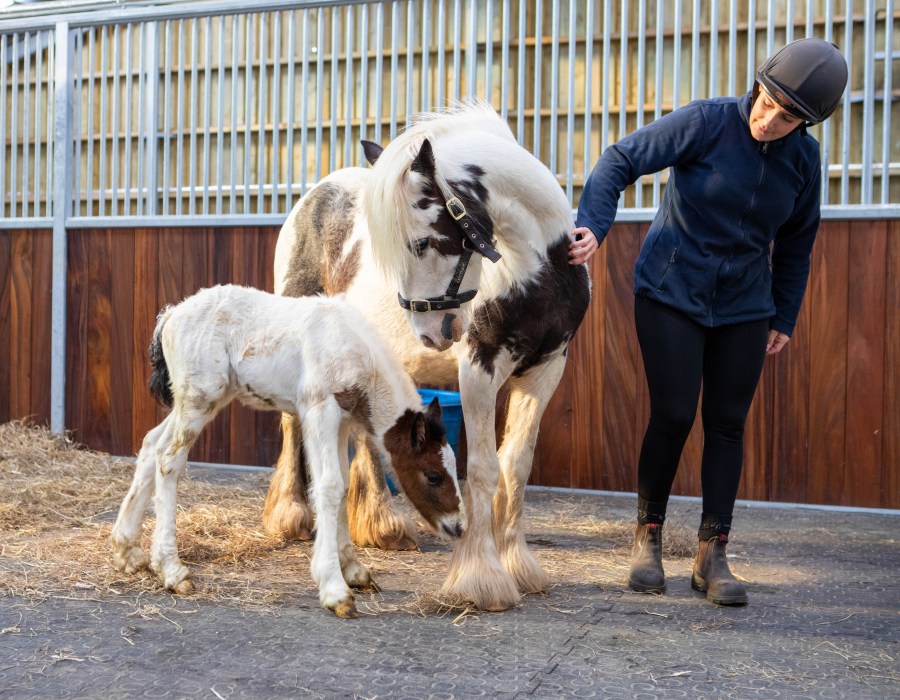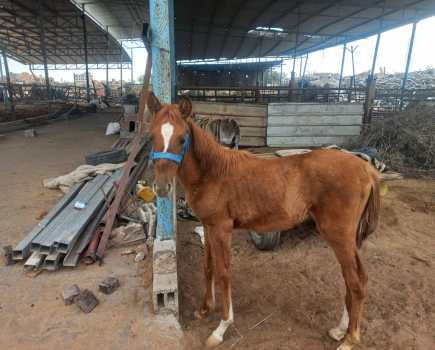World Horse Welfare’s Norfolk Rescue and Rehoming Centre has welcomed its first foal of the year, who was a particularly significant arrival. The coloured colt was the first arrival to one of five in foal mares that were rescued from being smuggled out of the UK and believed to be heading to a European slaughterhouse.
Skewbald mare Daisy gave birth to a healthy foal on Friday (12 April) and the colt has been named Pompey after the British port of Portsmouth to highlight the charity’s ongoing efforts to stop the illicit movements of horses in and out of the UK.
“Pompey is a bundle of joy,” said Holly Roe, Senior Groom at Hall Farm. “It fills my heart to see them relaxed and happy here now, with a secure future ahead of them.
“Whilst they will remain in our ownership for the rest of their lives, our aim is for them to find loving new homes – although it will be months before Pompey is weaned. “[It could have been] such a different outcome and I can’t bear to think about what their future might have been.”
Six-year-old Daisy is one of the ‘Dover 26’ – a group of horses and ponies intercepted by port officials from being illegally smuggled into Europe and rescued by World Horse Welfare. The group, which included veteran horses, in foal mares and frightened youngsters, was discovered in an overcrowded and ‘filthy’ vehicle, with many unfit for their intended journey and seven of the group undeclared to officials.
Whilst Daisy could be identified through her microchip and replacement passport, she wasn’t traceable and to date the only available record of her is that she, along with eight of the Dover 26 horses, was bought at an auction in the North-west of England just a week before being discovered at Dover. Despite this, Daisy and all the declared horses on board were travelling on EU documentation which stated their place of origin as the Republic of Ireland.
World Horse Welfare believes these horses had never set foot outside of Great Britain and by declaring them as an EU-to-EU movement and using GB as a land bridge, the illicit traders knew that they would undergo less stringent checks and could drive out of the green lane when they reached a European port.
“Pompey’s poignant birth underscores the harsh realities faced by vulnerable animals caught in this illegal trade in horses,” added a charity spokesman. “Transported for days without rest in overcrowded and unsanitary conditions, these horses suffer from a lack of basic necessities such as food and water, endure rough handling, and are exposed to increased risks of disease and injury.”
Anyone wishing to support World Horse Welfare’s rehabilitation of the ‘Dover 26’, can donate via their appeal page.









